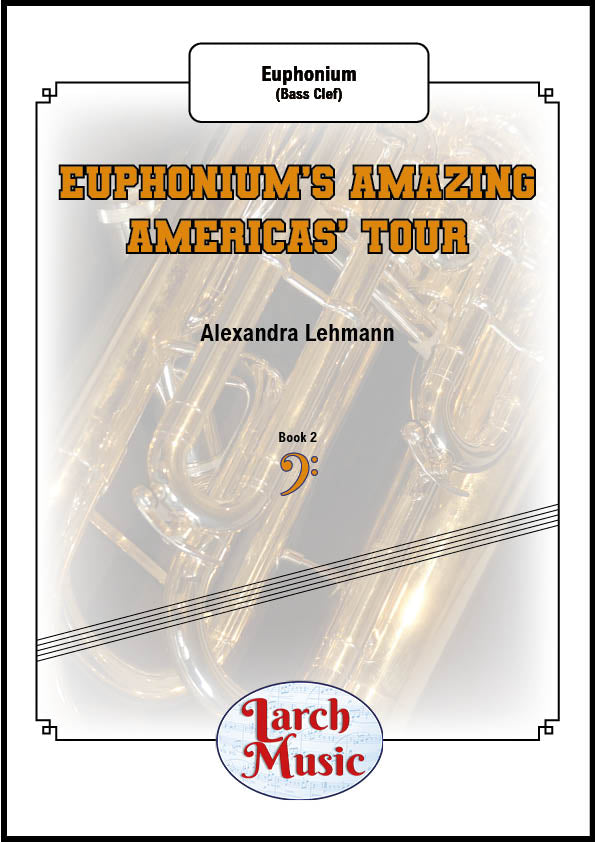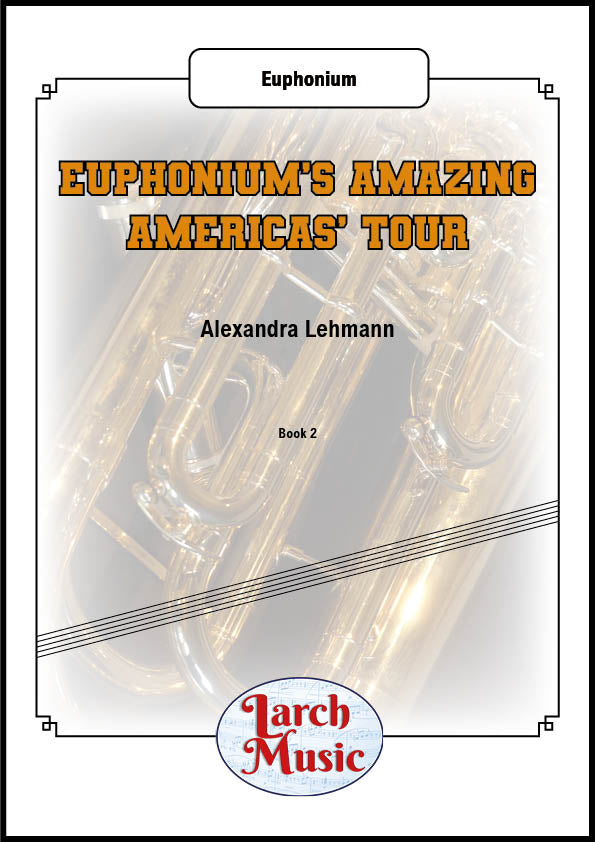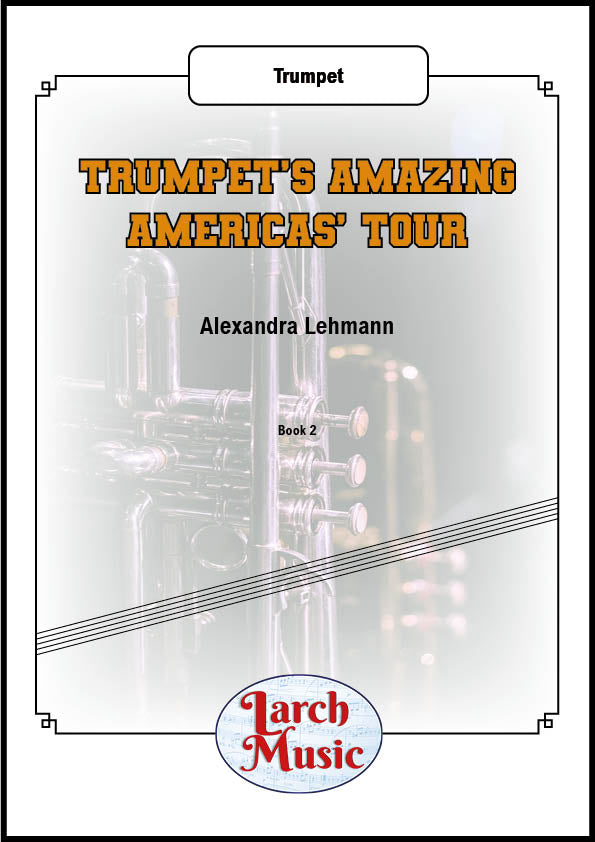Results
-
 £77.00
£77.00General Series Brass Band Journal, Numbers 2238 - 2241, December 2023
2238: Fanfare and allegro on the Doxology (Steve Kellner)The Doxology, set to the tune Old Hundredth (T.B. 31), is used widely around the world by Christian denominations, including Salvationists. This concert opener is based on the short but powerful hymn of praise to the Triune God.2239: To the endless day (Kenneth Downie)This is a meditation on the hymn tune Ruth (T.B. 191), written by Samuel Smith. It is a particular favourite of Don Jenkins, whose late wife was also called Ruth. This music is dedicated to Don, a distinguished trombone soloist and former Band master of Bristol Easton Corps Band.The music is always associated with the hymn by William Walsham How, whose words begin 'Summer suns are flowing over land and sea' (S.A.S.B. 59) with the title coming from the end of the final verse.2240: Euphonium Solo - He giveth more grace (Ray Steadman-Allen)This 1996 arrangement of Blacklands (T.B. 527), the composers own hymn tune written in 1963, is being published posthumously. The hymn tune sets the words 'He giveth more grace as our burdens grow greater' (S.A.S.B. 30) with an emphasis on the generosity of God.2241: The Calvary effect (Ian Clarke)Around AC 30, on a hill often refered to as Mount Calvary, an event took place that was to change the world forever. The Calvary effect is a reflection, in musical form, on that event and what it still means to people today. If features two tunes: first, in a quiet reflective mood, we hear the highly emotive Healing Stream, associated with the words 'Jesus, keep me near the cross; There is a precious fountain' (S.A.S.B. 178). This then makes way for the chorus; 'Lord, make Cavalry real to me' (S.A.S.B. 182), which is at times indistinct and almost lost in its surroundings, reflecting the sentiments of the chorus. A return to the main tune follows, this time in a positive, passionate setting. The music finishes with a triumphant 'Hallelujah!'.
Estimated dispatch 7-14 working days
-
 £50.00
£50.00Triumph Series Band Journal November 2016 Numbers 1279-1282
No. 1279 March - In the fellowship (Stephen Bulla)This march was written at the request of Bandmaster Jamie Hood who commissioned the piece for the 125th Anniversary of his home corps band at Basel 1 Corps. Within the march are two well-loved songs from the SA's Swiss song book, both of which are still sund frequently at the corps.No. 1280 Shout and sing! (Steven Ponsford)This light-hearted, lively piece of music is based on David Fellingham's song 'Shout for joy and sing your praises to the King'.No. 1281 (1) Sweet hour of prayer (trs. Doug Engle)Prayer offers us an opportunity to communicate with the Lord. The words of this hymn invite us to bring our concerns to a God who listens. As you listen to this arrangement, take time to reflect on how God has remained faithful through times of peace and distress.No. 1281 (2) The Lord bless you and keep you (arr. Andrew Wainwright)Peter Lutkin's beloved choral benediction is well known in vocal circles. Here it is given a simple treatment that it is hoped will inspire prayer reflection and renewed confidence in God's protection and guidance.No. 1282 March - I serve a risen Saviour (Noel Jones)This Easter march features the following songs: 'Look, ye saints! the sight is glorious' and 'I serve a risen Saviour'. The motif 'I serve a risen Saviour' is used throughout the first section of this march.
Estimated dispatch 7-14 working days
-
 £87.95
£87.95Masquerade (Score and Parts)
The first performance took place on the 4th. September 1993 at the Free Trade Hall in Manchester during the British Open Brass Band Championships.Note by Philip Wilby:Masquerade is a centenary tribute to Verdi's last opera Falstaff and takes its final scene as the basis for my own piece. Thus I have used some of Verdi's music, and some of Shalespeare's plot, and woven them into a fabric with highly demanding music of my own to produce a work in the great tradition of operatically-based brass band pieces. Such scores date from the very beginnings of band repertory and are often not direct arrangements in the established sense but new compositions produced in homage to a past master. They may still offer performers and audience alike something familiar interwoven with something new. My own piece reuses some elements from the original story: . .Falstaff has been caught in a web of his own lies by the ladies of the town, who propose to teach him a lesson. The story opens at night in Windsor Great Park. The plotters, variously disguised in Hallowe'en fashion (as fairies,elves hobgoblins etc!) assemble in the park to await Falstaff's arrival (musicologists will, perhaps, note a rare use of 'large bottle in F' being used during this scene of suppressed alcoholic revelry!). Falstaff's companions, Bardolph,Piston and Robin, enter (represented here by the three trombones!), and are variously abused by the masqueraders. At the height of the Tout an alarm sounds and Falstaff (euphonium cadenza) enters as Midnight strikes. From a safe hiding place he watches as the disguised Nanetta (principal comet) sings a serene solo as the moon appcars above the trees. With sudden force the others seize him and drag him from his hiding place. As in the traditional game 'Blind Man's Buff', he is roughly turned seven times (a sequence of solo accelerandi) until, at last, he recognizes his assailants as his sometime friends. Far from complaining, Verdi's character concludes the opera with a good-humoured fugue on the words.... 'All the World's a Joke... Every mortal laughs at the others, But he laughs best who has the final laugh. Philip Wilby.
Estimated dispatch 7-14 working days
-
 £44.95
£44.95Masquerade (Score Only)
The first performance took place on the 4th. September 1993 at the Free Trade Hall in Manchester during the British Open Brass Band Championships.Note by Philip Wilby:Masquerade is a centenary tribute to Verdi's last opera Falstaff and takes its final scene as the basis for my own piece. Thus I have used some of Verdi's music, and some of Shalespeare's plot, and woven them into a fabric with highly demanding music of my own to produce a work in the great tradition of operatically-based brass band pieces. Such scores date from the very beginnings of band repertory and are often not direct arrangements in the established sense but new compositions produced in homage to a past master. They may still offer performers and audience alike something familiar interwoven with something new. My own piece reuses some elements from the original story: . .Falstaff has been caught in a web of his own lies by the ladies of the town, who propose to teach him a lesson. The story opens at night in Windsor Great Park. The plotters, variously disguised in Hallowe'en fashion (as fairies,elves hobgoblins etc!) assemble in the park to await Falstaff's arrival (musicologists will, perhaps, note a rare use of 'large bottle in F' being used during this scene of suppressed alcoholic revelry!). Falstaff's companions, Bardolph,Piston and Robin, enter (represented here by the three trombones!), and are variously abused by the masqueraders. At the height of the Tout an alarm sounds and Falstaff (euphonium cadenza) enters as Midnight strikes. From a safe hiding place he watches as the disguised Nanetta (principal comet) sings a serene solo as the moon appcars above the trees. With sudden force the others seize him and drag him from his hiding place. As in the traditional game 'Blind Man's Buff', he is roughly turned seven times (a sequence of solo accelerandi) until, at last, he recognizes his assailants as his sometime friends. Far from complaining, Verdi's character concludes the opera with a good-humoured fugue on the words.... 'All the World's a Joke... Every mortal laughs at the others, But he laughs best who has the final laugh. Philip Wilby.
Estimated dispatch 7-14 working days
-
 £9.95
£9.95Euphonium's Amazing Americas Tour - Solo Euphonium (Bass Clef) - LM172 - Alexandra Lehmann
COMPOSER: Alexandra LehmannEuphonium's Amazing Americas TourThe year 2020 will be infamously recorded as a time when musicians had to lead a solitary life, which is incompatible with musical activity.1. Hearty HoedownEuphoniumplays at a lively, social, rural gathering;a 'hoedown'; for cowboys and girls. Yeeha!2. Barcarolle BluesOn the 18th of December 1865, the 13th Amendment(abolishing slavery in USA) was officially adopted into the Constitution.Euphoniumis on a boat sailing the Mississippi with former slavestravelling further north in hope of a better life.As the river gently sways the traumatised passengers,they find solace in music-making.3. Kindred KlezmerEuphoniumis playing for Ashkenazi (West and East European)Jews dancing fervently and with joy as a community.4. Carnival CalypsoFurther south, in 1834,Euphonium is playing at a carnivalcompetition in Trinidad, celebrating the abolition of slavery.It is in call (the lead singer)-and-response (the rest of the group) form.The chariot passes through cheering crowds,and trundles merrily into the distance.5. Tantalising TangoEuphoniumis at a dance theatre in downtown Buenos Aires,playing an intense, and moody tango.Couples dance in a passionate and powerful embrace.6. Hallowed Harawi of the IncasThe Incas are no more, like so many indigenouspeoples of the Americas.Euphonium plays an Incan Harawi,a love song, as their spirit still echoes across the valleys,mountains, forests, and rivers that nurtured them in ancient times.
In Stock: Estimated dispatch 3-5 working days
-
 £9.95
£9.95Euphonium's Amazing Americas Tour - Solo Euphonium (Treble Clef) - LM169 - Alexandra Lehmann
COMPOSER: Alexandra LehmannEuphonium's Amazing Americas TourThe year 2020 will be infamously recorded as a time when musicians had to lead a solitary life, which is incompatible with musical activity.1. Hearty HoedownEuphoniumplays at a lively, social, rural gathering;a 'hoedown'; for cowboys and girls. Yeeha!2. Barcarolle BluesOn the 18th of December 1865, the 13th Amendment(abolishing slavery in USA) was officially adopted into the Constitution.Euphoniumis on a boat sailing the Mississippi with former slavestravelling further north in hope of a better life.As the river gently sways the traumatised passengers,they find solace in music-making.3. Kindred KlezmerEuphoniumis playing for Ashkenazi (West and East European)Jews dancing fervently and with joy as a community.4. Carnival CalypsoFurther south, in 1834,Euphonium is playing at a carnivalcompetition in Trinidad, celebrating the abolition of slavery.It is in call (the lead singer)-and-response (the rest of the group) form.The chariot passes through cheering crowds,and trundles merrily into the distance.5. Tantalising TangoEuphoniumis at a dance theatre in downtown Buenos Aires,playing an intense, and moody tango.Couples dance in a passionate and powerful embrace.6. Hallowed Harawi of the IncasThe Incas are no more, like so many indigenouspeoples of the Americas.Euphonium plays an Incan Harawi,a love song, as their spirit still echoes across the valleys,mountains, forests, and rivers that nurtured them in ancient times.
In Stock: Estimated dispatch 3-5 working days
-
 £9.95
£9.95Trumpet's Amazing Americas Tour - Solo Trumpet - LM187
COMPOSER: Alexandra LehmannTrumpet's Amazing Americas TourThe year 2020 will be infamously recorded as a time when musicians had to lead a solitary life, which is incompatible with musical activity.1. Hearty HoedownTrumpetplays at a lively, social, rural gathering;a 'hoedown'; for cowboys and girls. Yeeha!2. Barcarolle BluesOn the 18th of December 1865, the 13th Amendment(abolishing slavery in USA) was officially adopted into the Constitution.Trumpetis on a boat sailing the Mississippi with former slavestravelling further north in hope of a better life.As the river gently sways the traumatised passengers,they find solace in music-making.3. Kindred KlezmerTrumpetis playing for Ashkenazi (West and East European)Jews dancing fervently and with joy as a community.4. Carnival CalypsoFurther south, in 1834,Trumpet is playing at a carnivalcompetition in Trinidad, celebrating the abolition of slavery.It is in call (the lead singer)-and-response (the rest of the group) form.The chariot passes through cheering crowds,and trundles merrily into the distance.5. Tantalising TangoTrumpetis at a dance theatre in downtown Buenos Aires,playing an intense, and moody tango.Couples dance in a passionate and powerful embrace.6. Hallowed Harawi of the IncasThe Incas are no more, like so many indigenouspeoples of the Americas.Trumpet plays an Incan Harawi,a love song, as their spirit still echoes across the valleys,mountains, forests, and rivers that nurtured them in ancient times.
In Stock: Estimated dispatch 3-5 working days



